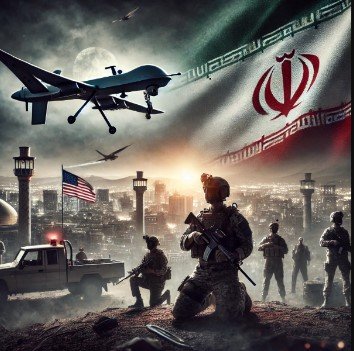
A symbolic illustration of Trump’s Gaza Plan, depicting destruction, reconstruction, and geopolitical negotiations.
In yet another unexpected turn of events, former U.S. President Donald Trump has made headlines with his latest move—Trump’s Gaza Plan—which aims to reshape the future of the region. Trump suggests the U.S. control Gaza, rebuild it, and relocate Palestinians to Egypt and Jordan. This statement has sparked global debate, drawing strong reactions from both supporters and critics. Meanwhile, Trump has also issued a dire warning to Iran, claiming that the country attempted to assassinate him and that any further attempts would result in Iran being “wiped off the face of the Earth.”
U.S. Relocation Proposal Sparks Debate Over Gaza
During a recent press briefing, Trump characterized Gaza as a “demolition site” making it uninhabitable due to the ongoing conflict. His Trump’s Gaza Plan suggests relocating Palestinians to safer areas, sparking global debate. Experts, in The Guardian, question the plan’s feasibility and its regional impact. He suggested moving Gaza’s residents to safer areas instead of rebuilding it. He proposed that rather than rebuilding Gaza, its residents should be permanently relocated to safer and more prosperous areas. According to Trump, this would offer Palestinians a chance at a better life, free from the cycles of violence that have plagued the region for decades.
“If we could find the right piece of land or numerous pieces of land and build them some really nice places, that would be much better than going back to Gaza, which has had just decades and decades of death,” Trump stated.
He further suggested that international donors, including wealthy Middle Eastern nations such as Saudi Arabia, could contribute financially to the resettlement effort. However, he insisted that the U.S. would take charge of clearing unexploded ordnance, leveling the rubble, and transforming Gaza into a functioning economic zone.
Rejection from Egypt, Jordan, and Palestinian Leaders on Gaza Plan
Trump’s proposal has been met with outright rejection from key stakeholders. Egyptian and Jordanian officials have firmly denied any willingness to accept Palestinian refugees, with Jordanian leadership particularly sensitive to the issue due to past political instability linked to Palestinian groups.
Palestinian leaders have condemned the idea, calling it an attempt to erase Palestinian identity and historical claims to the land. The proposal also contradicts long-standing diplomatic efforts advocating for a two-state solution in which Israel and Palestine coexist peacefully.
“Palestinians will not be forcibly removed from their homeland. This is a clear attempt to undermine Palestinian sovereignty,” a Palestinian Authority spokesperson declared.
Additionally, Saudi Arabia has distanced itself from Trump’s remarks, emphasizing that it remains committed to a two-state solution and would not normalize relations with Israel without a clear path to Palestinian statehood.

Trump’s Gaza Plan and Renewed Tensions in the Middle East
In a separate but equally inflammatory statement, Trump accused Iran of attempting to assassinate him, former Secretary of State Mike Pompeo, and former National Security Adviser John Bolton. He claimed that Iran had orchestrated assassination plots against U.S. leaders and warned of severe consequences if any such attempt succeeded.
“If they try that again, they will be obliterated. There won’t be anything left,” Trump stated during a press conference.
As tensions rise, Trump vows to reinstate a ‘maximum pressure’ strategy to cripple Iran’s economy. According to Al Jazeera, Iranian officials have dismissed the allegations and accused the U.S. of fabricating threats to justify renewed sanctions. This strategy, introduced during his presidency, reduced Iran’s foreign reserves from $150 billion to $4 billion.
Iran denies the allegations, calling them politically motivated to justify harsher sanctions. Iranian officials have also reiterated their commitment to advancing their nuclear program, a major point of contention with both the U.S. and Israel.
U.S. Foreign Policy and Middle East Strategy: What’s Next?
Trump’s remarks suggest a shift in U.S. policy toward the Middle East. His Trump’s Gaza Plan remains controversial. Some see it as a solution, others call it a violation of sovereignty. By advocating for U.S. control over Gaza and taking a hardline stance on Iran, Trump signals a shift toward a more interventionist and unilateral approach compared to the Biden administration’s diplomatic efforts.
Critics say forcing Palestinians to relocate may break laws and cause instability. Supporters believe Trump’s plan could resolve a long-standing issue and promote economic stability.
With King Abdullah II of Jordan scheduled to visit the White House next week, all eyes will be on whether Trump’s proposal gains any traction or remains another one of his polarizing diplomatic stances.
For more insights and breaking news, check out our homepage.
Stay tuned to Suchak News for further developments on this evolving geopolitical story.





I’ve been waiting to feel your touch… ready? – https://rb.gy/es66fc?SeadsJex